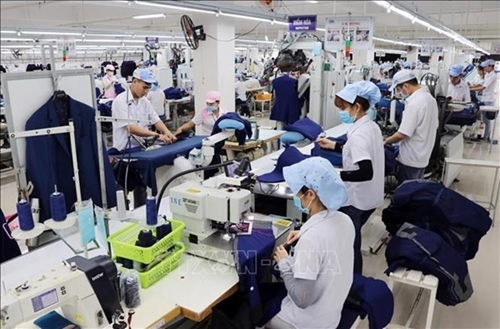Textile and garment exports play an important role in the country’s economy, accounting for about 12.52% of export turnover. This shows the importance and influence of this industry on Vietnam’s trade.
Over the recent decades, Vietnam has recorded high growth in the industry and become a major supplier of garments.
    |
 |
|
Vietnam has become the world’s leading textile and garment exporter |
Despite difficult and challenging situation, Vietnam is expected to achieve high economic growth in terms of capital expenditure thanks to a strong increase in foreign direct investment (FDI) and investment in infrastructure.
The Vietnamese government has identified the need to invest in domestic infrastructure. Investment in power infrastructure demonstrates Vietnam’s commitment to common infrastructure development.
The textile industry, including synthetic textiles, plays an important role in Vietnam’s exports. Vietnam has also made efforts to improve the business environment and promote sustainable practices in the textile and garment industry. With its continued economic development, Vietnam continues to attract investors and strengthen its presence in global trade.
Vietnam has been making efforts to promote sustainable activities in the textile and garment industry. The government has initiated plans to improve environmental standards, energy efficiency and waste management.
Sustainable materials are increasingly being developed such as organic cotton and recycled fibers to reduce environmental impact.
Customers, especially those representing major brands and international brand chains, are restructuring global supply chains to meet stringent sustainability goals with regard to environmental performance.
Fiber2fashion.com said that Vietnam has really become one of the leading textile and garment suppliers in the world.
Vietnam’s success in this industry can be attributed to many factors such as natural resources as the country has a suitable climatic conditions for growing cotton and natural fibers, an open economy which has implemented economic reforms and actively participated in international trade, low labor costs which helps to attract FDI, and stable cross-border trade with stable cross-border trade through many agreements.
These factors, together with investment in infrastructure, skills development and production capacity, have spurred the development of Vietnam’s textile and garment industry.
Vietnam has attracted major international brands and retailers and has become an important source of supply.
Source: VNA